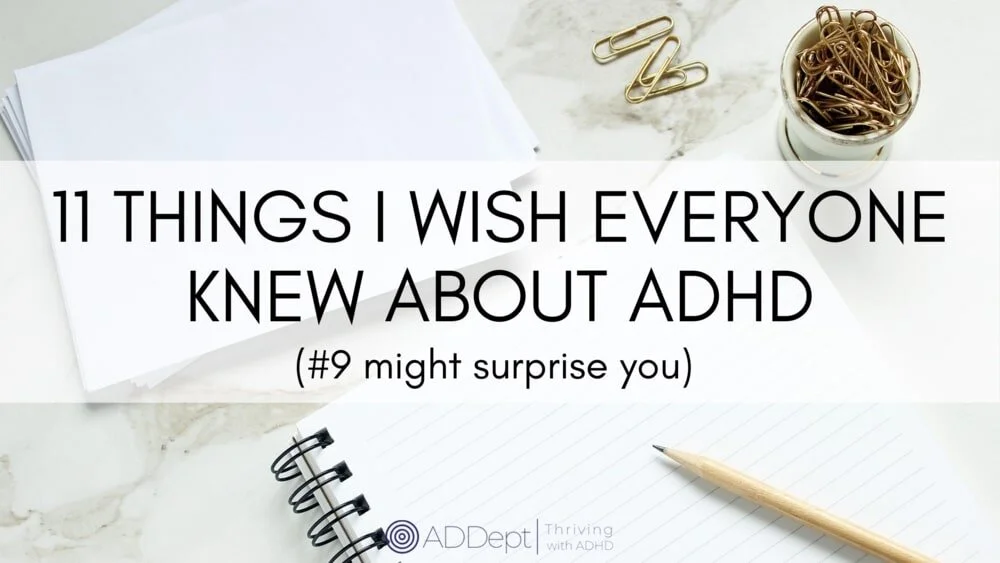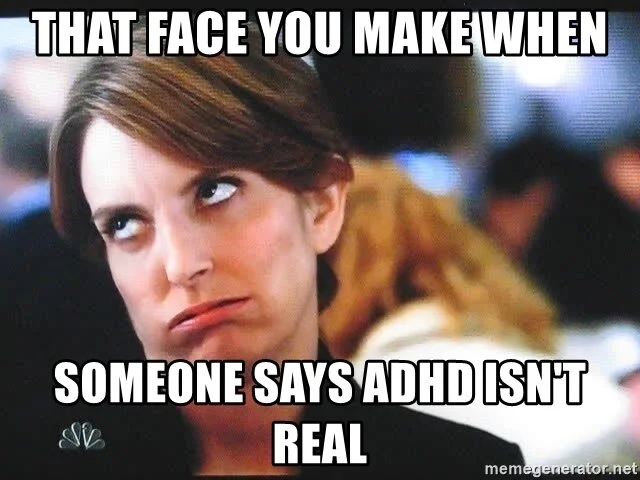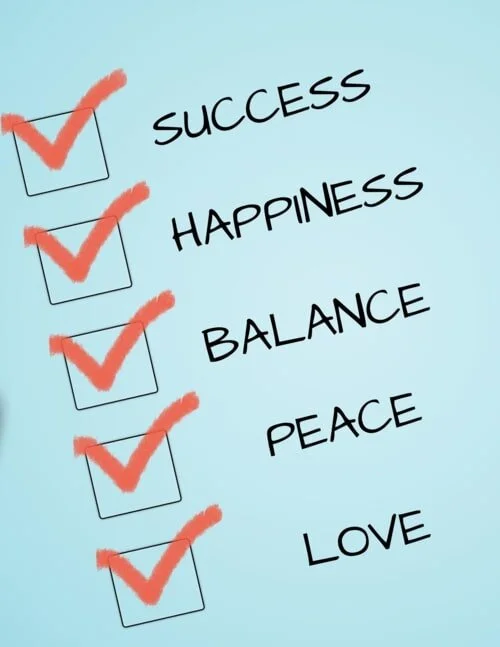About 6 months ago, I was at a dinner party and somehow won the seating chart lottery and landed beside a fascinating and easy dinner companion. We talked about everything, from politics to parenting, to professional ice skating. Now, I should note, I’m an introvert, and despite talking to people for a living day in and day out, I struggle at the usual small talk. Basically, if you don’t want to tell me about your innermost fears and struggles, it’s hard for me to know what to say. So, this conversation stood out. It was real, it was honest, and it was easy.
As we were wrapping up a particularly delicious appetizer of Thai coconut milk muscles, my vivacious dinner companion asked me a question that made me stop slurping my sauce and really think. He asked: What is the one thing you wish everyone knew about ADHD?
At the time, the pause was not that I didn’t have a response, it was that I had too many responses.
Because you can’t live and work in the world of ADHD without hitting a sea of misinformation, misconception and, let’s face it, ignorance.
So, I didn’t keep it at just one- and I’m not going to keep it at one here either- because ADHD is complex, the people who have it are complex, and the reactions of the world are sometimes even more complex. Here is my list:
11 Truths about ADHD I wish everyone knew
(Number 9 might surprise you)
ADHD is real. Really real.
ADHD is a neurodevelopmental disorder that impacts the regulation of the brain. It is not a made-up disorder for kids who want to party on stimulants, it is not an excuse for laziness, and it is not just a reaction to
too many screens or too much stimulation. Sure, all of those things do
exist. But they don’t negate the fundamental truth that about 2-5% of adults have this basic neurological difference.
2. No, Not everyone has ADHD
Every human can relate to some of the struggles of the ADHD brain: difficulty with motivation, procrastination, and attention. Because the tired, stressed, or otherwise overtaxed brain struggles with regulation too. But the difference
is one of degree and persistence. So, yes, you may lose your keys every so often. But an ADHD brain? It loses them so regularly it’s shocked that one day they are right where they are supposed to be.
3. ADHD is a gift AND a hinderance
About a decade ago, one of the major controversies in the ADHD world was whether it was a gift or a hindrance. But like so many of these types of either/or debates, I’ve always found the essential premise ridiculous. It’s not a gift OR a struggle. It’s a gift AND a struggle. There is great beauty, genius, and joy in an ADHD brain, and the world benefits from the different perspectives, energies, and pace that an ADHDer brings to it. But it also sucks. (Yes, that’s my technical term for it). It is a massive pain in the a—to
work desperately to develop a semblance of a routine just to have it be thrown out
the window by a
weekend, or a vacation or a new job. It is exhausting to spend half of your day’s energy just trying to get out the door in the morning. It is demoralizing to feel no motivation to do the work to accomplish a task that’s important to you until it’s too late to actually do it well. It all sucks. It doesn’t take away from the brilliance, but it can make it a hell of a lot harder to enjoy.
4. Success, happiness, balance, and peace with ADHD are all possible (though they may look a little different).
There is no cure for ADHD, but it is also not a life-sentence of despair. There is so much hope, change, and wisdom in the ADHD community. If you don’t know that or can’t see that, I encourage you to join a group of ADHDer’s as they move through this world. Celebrate the brilliance and success, learn their tricks, and feel their joy. Don’t know where to join? Come join us, the ADDept ADHD Facebook Community, and see the many forms ADHD brilliance can take.
5. Self-awareness is the most crucial component of thriving with ADHD.
Most of my client’s come to me feeling like only some strange alchemy or strike of motivational lightning can get them moving and make them productive. The bulk of our work together is destroying that belief system. Because it’s not some unknowable force that helps your brain activate, it’s an amalgamation of knowable, changeable variables: sleep, nutrition, exercise, time of day, pressure, interest, and excitement. Once you start to really understand how each of these variables (and a few of your own) impact you, you unlock your brain’s personal code box, and you get to flip the switches at will.
6. Your ADHD brain, energy, and vision are all gifts to those around you.
Despite the complaints about the socks on the kitchen counter, the eye rolls as you arrive 15 minutes late to the meeting (again) or the exasperated sighs as you run around the house looking for your lost shoe, you, your brain and all of the energy, vision, and passion you bring are gifts you share with everyone you meet. Don’t forget that. Because we all
benefit so much from your presence. If we have to pay the price- so be it, that’s true of every human. Own your brilliance, it’s awesome.
7. ADHD isn’t laziness.
It can be hard to understand why the ADHD brain can’t get off the couch to clean the house but can happily fix a bike for hours every single weekend.
It can feel or look like laziness, or immaturity, or not understanding consequences. But it’s not. It’s motivation. And the ADHD brain is only motivated by a few things. Once you understand what gets it going and what floods it with the dopamine it craves, it’s easier to see- it’s not a personality flaw. It’s a dopamine
it’s not a personality flaw. It’s a dopamine deficiency and a motivational difference. Let’s stop blaming moral character for struggles of our prefrontal cortex.
8. ADHD isn’t one size fits all
ADHD is no longer the disorder of yore. The one defined by hyperreactive 7-year old’s bouncing off the walls and causing teachers all over the world to tear their hair out. ADHD is everywhere- in men, women, little boys, and little girls. You see it in courtrooms, boardrooms, ER’s, 5-star restaurants, and factory floors. People with ADHD are of every ethnicity, every race, and every age. But not only does it affect all people across every range of diversity, but it also looks slightly different in each person. Some ADHD brains find it easy to motivate but can’t organize; others find it close to impossible to be on time, but they can plan out a project with ease; still, others are endlessly fascinated with even the most boring-seeming tasks, but they can’t organize all that passion into a format that others can grasp. ADHD is a constellation of difference, and that constellation gets reflected uniquely in each person.
9. ADHD isn’t really about attention (or even hyperactivity)
ADHD isn’t just about attention, focus, or hyperactivity. It is about the regulation of all of our brain’s systems. That means the ADHD brain doesn’t match the requirements of a task with the amount of a process. So it will give too much or too little of any one thing: emotion, attention, effort, excitement, etc. This is the actual distinction in the ADHD brain- difficulty with regulation.
10. It’s really normal for people with ADHD to struggle with roller-coaster emotions.
Because the ADHD brain struggles to regulate all of its systems, it also struggles to regulate emotions. Combine that with its tendency to be extra sensitive to things like rejection or failure, and you can go from feeling ecstatic one minute to suddenly furious the next. That doesn’t make you crazy it makes your brain different in the way it processes emotion.
11. ADHD is a difference, and like all differences, it should be celebrated.
ADHD brains see the world, feel the world, and process the world differently. That’s cool. That allows the rest of us, if we listen well, to broaden our perspective and appreciate new and different things we may never have before. Let’s gather together and listen; let’s learn, and let’s stop seeing differences as a threat to our own perspective. Differences are like facets on a diamond- each one adds new brilliance and sparkle.
What are the things you wish more people knew about ADHD? What myths did you hold that you had to correct over the years?
Ready to shift from
meltdown to mastery?
This online course has been designed specifically to help teach the strategies ADHD brains need to help them move from overwhelm and meltdowns to confident emotional mastery.
Want to know more about
thriving with ADHD?
Check out these other articles:



















5 questions you should always ask before starting ADHD therapy